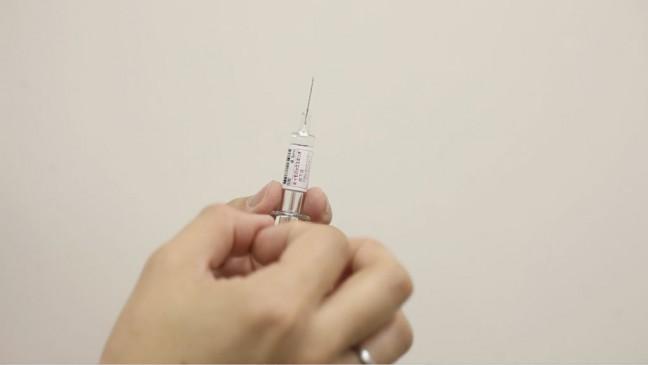Wisconsin parents would no longer be able to cite “personal conviction” for a reason to exempt their children from required vaccinations under a new bill currently being circulated at the Capitol.
Rep. Gordan Hintz, D-Oshkosh, author of the bill, said he introduced his legislation in response to the rising number of people choosing to opt out of immunizations using the personal exemption reason.
“The reason that we’ve introduced this bill is because in the last 20 years, we’ve gone from 1 percent opting out to more than 5 percent. The national average is about 2.5 percent,” Hintz said. “We’re trending in the wrong direction.”
Hintz said Wisconsin has one of the broadest requirements for waiver reasons, making it easy for parents to opt-out.
According to the National Vaccine Information Center, required school vaccinations can be waived if the student or parent submits a written statement to the school, day care or nursery objecting to the immunization for reasons of health, religion or “personal conviction.”
Under the bill, health and religion would still be valid reasons for requesting immunizations.
But Michael Ramey, ParentalRights.org spokesperson, said it’s a parent’s right to make informed medical decisions for their children, and the government should not inhibit that right.
“These bills that would remove from parents the authority to decide what vaccines are best for their children and give that authority to a bureaucratic board that has never seen the child violates this fundamental right of parents,” Ramey said in an email to The Badger Herald. “It also violates the freedom of children ‘to be secure in their persons,’ per the Fourth Amendment, and it violates the fundamental medical ethic of ‘informed consent.'”
Hintz said “personal conviction” is often used by parents who run out of time to get their children vaccinated, but still want them to be able to attend school. He said parents just fill out the waiver instead of getting vaccinations done.
Stephanie Schauer, Wisconsin Department of Health Services immunization program director, said vaccines are one of the most effective ways to prevent against diseases.
“Vaccines are among the safest ways to go ahead and prevent disease,” Schauer said. “Vaccines undergo very rigorous testing before licensure, as well as afterwards to make sure that they continue to remain safe.”
But Shane Ellison, who holds a master’s degree in organic chemistry, said in his blog that parents should not vaccinate their kids because vaccinations can lead to autism, seizures and nerve damage.
Schauer, however, said these sorts of claims are not scientifically supported. There have been some smaller studies that linked vaccinations to things like autism, Schauer said, but when the science behind these studies was investigated those claims were proven to be false.
Ramey said ParentalRights.org does not have a position on the safety risks or medical efficacy of vaccines, only parents’ right to choose.
Some of the most effective vaccinations is the measles vaccination, which is 98 percent effective in protecting measles, and HPV, which is 93 percent effective, Schauer said. The most common side effects of vaccinations include redness or swelling at the site of infection, which only lasts a few days, Schauer said.
If people choose to opt out, Schauer said, it puts vulnerable populations, such as pregnant women and the elderly, at risk of contracting the disease. She said a higher percentage of the population needs to be vaccinated to prevent person to person transmission and another outbreak.
“Even if 10 percent of American parents choose to opt out of immunization we would see diseases like measles and rubella return,” Schauer said. “It’s really making sure that you’re protecting yourself, as well as your community.”
Vaccinations can prevent infections like the measles outbreak in Disneyland that happened in April 2015, Hintz said. Schauer said many of those who contracted the illness were not vaccinated for measles.
Hintz said his bill would put Wisconsin in line with the majority of the U.S. since 32 states currently do not have the personal reasons option. He said vaccinations are important to ensuring the safety of citizens.
“It’s the right thing to do,” Hintz said. “Public health is important and we should do everything we can to encourage as many people as we can to get vaccinated.”
Schauer encouraged those who have not done so to get their flu shot, and make sure that their immunizations are up to date, by checking the online registry.
The bill has circulated for cosponsorship, but has not yet been assigned to a committee or had a public hearing.


